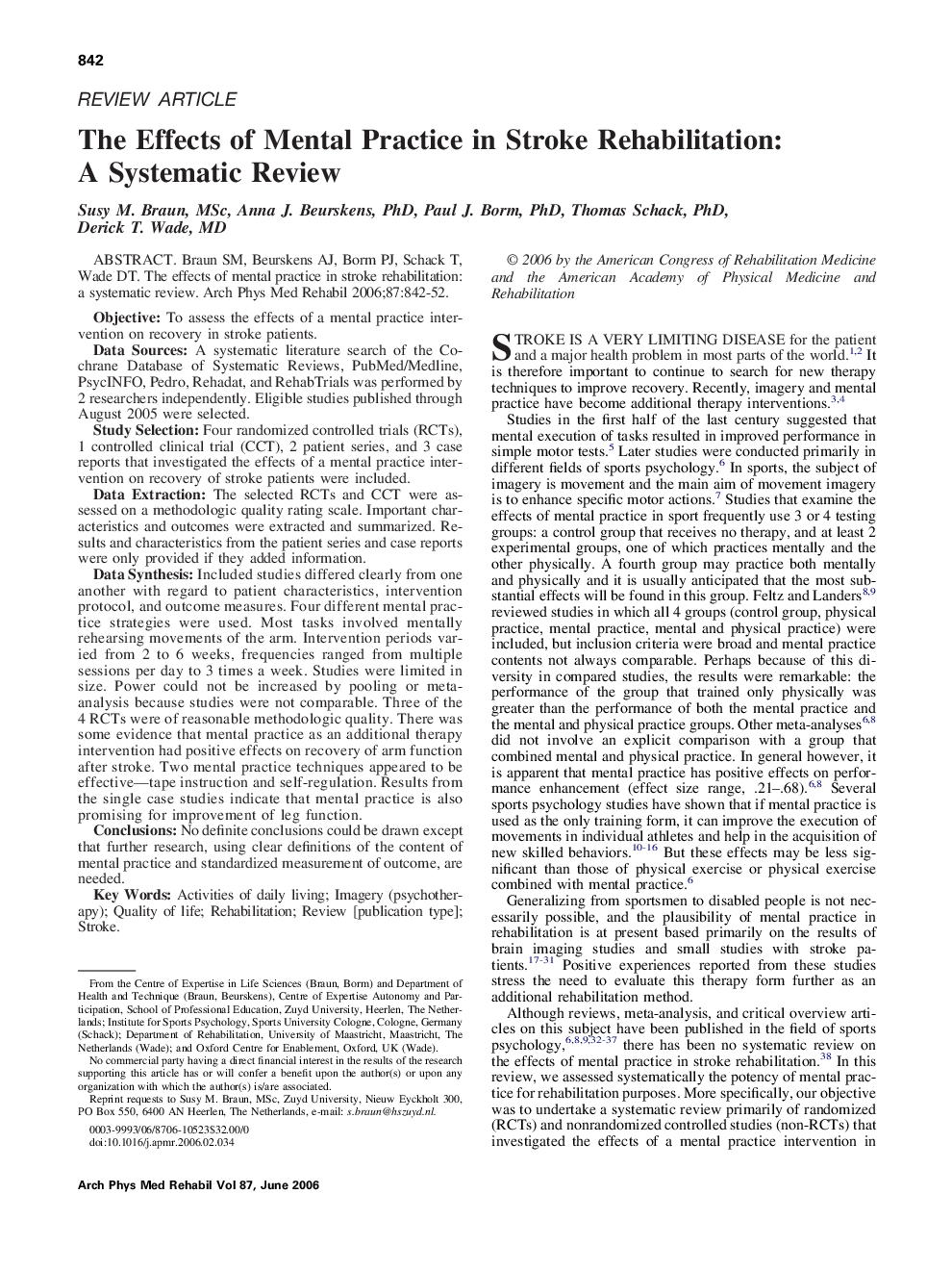| کد مقاله | کد نشریه | سال انتشار | مقاله انگلیسی | نسخه تمام متن |
|---|---|---|---|---|
| 3452379 | 1595806 | 2006 | 11 صفحه PDF | دانلود رایگان |

Braun SM, Beurskens AJ, Borm PJ, Schack T, Wade DT. The effects of mental practice in stroke rehabilitation: a systematic review.ObjectiveTo assess the effects of a mental practice intervention on recovery in stroke patients.Data SourcesA systematic literature search of the Cochrane Database of Systematic Reviews, PubMed/Medline, PsycINFO, Pedro, Rehadat, and RehabTrials was performed by 2 researchers independently. Eligible studies published through August 2005 were selected.Study SelectionFour randomized controlled trials (RCTs), 1 controlled clinical trial (CCT), 2 patient series, and 3 case reports that investigated the effects of a mental practice intervention on recovery of stroke patients were included.Data ExtractionThe selected RCTs and CCT were assessed on a methodologic quality rating scale. Important characteristics and outcomes were extracted and summarized. Results and characteristics from the patient series and case reports were only provided if they added information.Data SynthesisIncluded studies differed clearly from one another with regard to patient characteristics, intervention protocol, and outcome measures. Four different mental practice strategies were used. Most tasks involved mentally rehearsing movements of the arm. Intervention periods varied from 2 to 6 weeks, frequencies ranged from multiple sessions per day to 3 times a week. Studies were limited in size. Power could not be increased by pooling or meta-analysis because studies were not comparable. Three of the 4 RCTs were of reasonable methodologic quality. There was some evidence that mental practice as an additional therapy intervention had positive effects on recovery of arm function after stroke. Two mental practice techniques appeared to be effective—tape instruction and self-regulation. Results from the single case studies indicate that mental practice is also promising for improvement of leg function.ConclusionsNo definite conclusions could be drawn except that further research, using clear definitions of the content of mental practice and standardized measurement of outcome, are needed.
Journal: Archives of Physical Medicine and Rehabilitation - Volume 87, Issue 6, June 2006, Pages 842–852